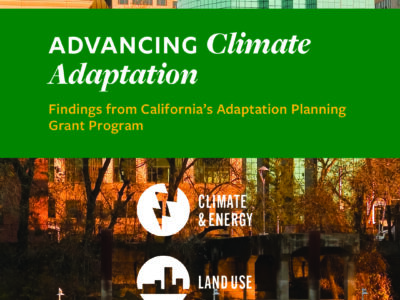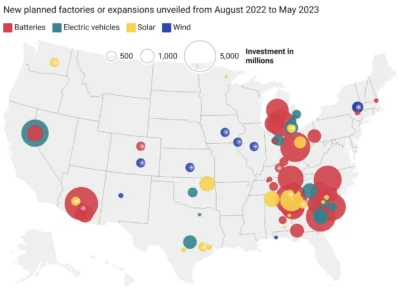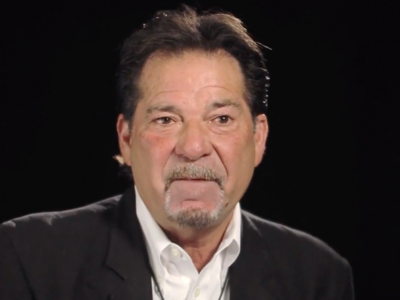Hillary Clinton, Climate Change, and the ‘Sliding Doors’ of History
Here’s what could have happened instead of Trump's crusade against climate action, if Clinton had squeaked out a victory in 2016.
In the movie Sliding Doors, Gwyneth Paltrow is racing to catch the subway, only to have the doors slide shut when she’s inches from boarding. This turns out to be a crucial fork in the road— if she’d caught the train, it turns out, her whole life would have been different. In 2016, Hillary Clinton missed winning the presidential election by the narrowest of margins. The trajectory of climate policy would have been entirely different if she’d just squeezed thr...
CONTINUE READINGCounting the Climate Costs of Warfare
There are calls for nations to disclose their military-related greenhouse gas emissions as researchers try to tally the climate impacts of war in Ukraine and Gaza.
What if I told you that nations around the world were ignoring a significant amount of their greenhouse gas emissions by omitting an entire dirty sector from their tally? Would you be horrified? Would you want to close that loophole so that parties to international agreements are required to report these hidden emissions as part of their national climate targets? That is, of course, the case with the climate costs of warfare. Parties to the Paris Agreement are not...
CONTINUE READINGReforming California’s Financial Penalties for Water Theft Will Create an Effective Deterrent
Overdue State Water Reform Legislation Likely Be Enacted in 2024--Finally
In a Legal Planet Post earlier this week, I recounted the saga of how federal prosecutors recently secured the criminal conviction of Dennis Falaschi, the former San Joaquin Valley water district general manager who oversaw the decades-long theft of millions of gallons of publicly-owned water from California's Central Valley Project. That successful prosecution certainly qualifies as a good news story on the environmental enforcement front. But it's rare indeed when...
CONTINUE READINGWhy are the Dodgers Sullying Their Brand With Big Oil?
As fossil fuel advertising increasingly comes under fire, it's time for the ball club to call 'strike three' on 76.
On a recent trip to the Ravine, a friend and I couldn't help but be struck by the prominence of advertisements for 76, a gas station company owned by the Big Oil conglomerate Phillips 66. A couple of giant 76 signs sit atop the two main Dodgers scoreboards; their placement is such that they dominate any view of the outfield and provide the backdrop for every photograph the Dodgers project of the team's beloved boys in blue. (See, for example, the photo above.) ...
CONTINUE READINGHypothetically Speaking: What if Trump Had Won in 2020?
In terms of climate policy, the short answer is "nearly total destruction."
Elections do matter. We need to look no further back than the last presidential election to confirm this. If Trump, rather than Biden had won, the impact on climate and energy policy would have been profound. We know a lot about Trump’s views because he had already had four years to implement them. Among other things, he rolled back nearly all of Obama's climate regulations, and he did his best to promote fossil fuel production and use. Trump’s approach is based o...
CONTINUE READINGWill Biden and Trump Debate Climate Change?
Here are 22 climate-related questions that moderators could ask Biden and Trump in the presidential debates, as well as the one question they should avoid.
President Joe Biden and former president Donald Trump are tentatively set to square off on a stage in Atlanta on June 27 in the first of two presidential debates and there are plenty of climate-related questions that CNN moderators should consider—especially since parts of the country may be sweltering under a heat wave, Georgia’s neighbors will be preparing for an abnormally intense hurricane season, and Earth just recorded its 12th consecutive month of record-b...
CONTINUE READINGHow are California’s New Climate Adaptation and Resilience Grant Programs Performing?
CLEE reports analyze state’s highly in-demand adaptation and resilience grants for crucial local climate action
California is rapidly experiencing the impacts of a changing climate, from devastating wildfires and persistent droughts to rising sea levels, extreme heat, and erratic precipitation patterns. Climate adaptation is crucial for building resilience to these and other risks, thereby protecting California's communities, economy, environment, and public health. However, effective adaptation requires significant investment, particularly in comprehensive, integrated, and equity...
CONTINUE READINGCan the IRA Trump-Proof Itself?
Building A Political Firewall Against IRA Repeal
Biden’s signature climate law, the Inflation Reduction Act, is squarely in Donald Trump’s sights. There is certainly a risk that a GOP sweep in November would result in repeal, as I’ve written before. Yet there are increasing signs that the IRA has created a powerful political constituency deep in Republican domains. This will make repealing or neutering the IRA politically difficult. It may also broaden support for future expansion of clean energy. Subsid...
CONTINUE READINGA Brazen California Water Heist Revealed, Prosecuted & Punished
San Joaquin Valley Water District Manager Pleads Guilty to Conspiring to Steal Public Water for 20+ Years
Recently, former Panoche Drainage District general manager Dennis Falaschi pled guilty in federal district court in Fresno to having conspired to steal millions of gallons of publicly-owned water from California's Central Valley Project (CVP) for private gain. This surreptitious water theft apparently had been going on for well over two decades before Falaschi was finally brought to justice. The story of this water scandal was originally reported by former Sac...
CONTINUE READINGFinalists to be Trump’s Veep Pick
Not surprisingly, none of them augurs well for the environment, but some are worse than others.
According to NBC News, Trump’s search for a Vice Presidential candidate is focusing on three Senators (J.D. Vance, Marco Rubio & Tim Scott) and one governor (Doug Burgham). Trump has never been one to stick religiously to a set process, and he likes to surprise. So there’s a fair chance the choice will be someone else. The odds for the candidates on this list are high enough, however, to make their environmental views worth a serious look. I’ll discuss them...
CONTINUE READING












